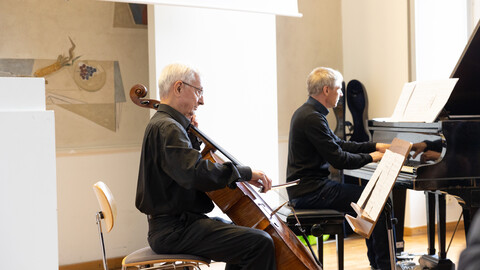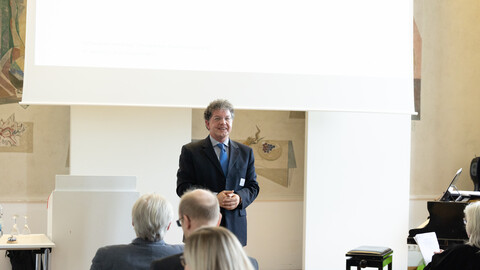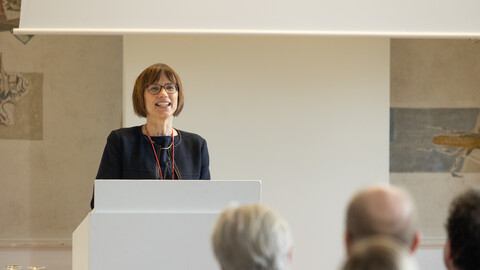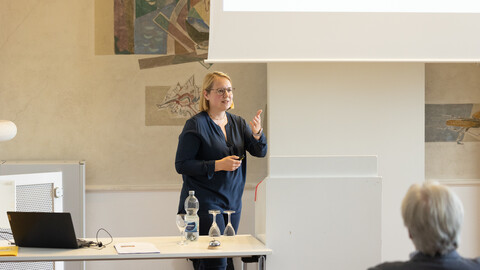Data-Driven Quality Improvement — University and Schools in Dialogue
On the afternoon of 17 May 2023, the Fuchs-Petrolub-Festsaal in the University of Mannheim’s baroque palace was bustling with people. The auditorium was packed with 70 or so guests invited by the Center for Teacher Education and Educational Innovation (ZLBI). It was a varied crowd: Representatives from Baden-Württemberg’s cultural bodies (the state culture ministry, the ZSL, the IBBW), teacher training courses, universities, schools, the City of Mannheim, the Rhine–Neckar Metropolitan Region, and many others besides had come together for a symposium on a highly topical issue that has a surprisingly long history in Mannheim.

“Over 100 Years in Mannheim: Dialogue between Universities and Schools on Teacher Training and Educational Research—A Starting Point for Data-Driven Quality Improvement.” Students from the Teacher Education and Economic and Business Education programs were also in attendance, as were school students. Musical accompaniment was provided by Professor Stefan Münzer on the piano and Professor Emeritus Manfred Hofer on the cello, who performed several pieces composed by Münzer.

“Data-driven quality improvement is an important topic in the cultural sector, since Baden-Württemberg is bringing in three new measures in the 2023/

Following an introduction by Professor Annette Kehnel, Vice President for Student Affairs and Teaching, there were two keynotes that bridged the gap between past and present. First off, Alfred Storch — who, as a former teacher and educational psychologist at the Rhineland-Palatinate State Educational Institute (PL), has many years’ experience in teacher education and school development — told the story of the Department of Psychology and Pedagogy’s founding at the University of Mannheim in 1918. He also gave examples of how the department used empirical studies to help Mannheim schools improve their structures and teaching. This early data-driven cooperation can be seen as a forerunner to today’s educational research projects. (See the link in the box for more information about the lecture.)

Professor Karina Karst, junior professor of Teaching Quality in Heterogeneous Contexts and regional head of the educational research initiative SchuMaS, then talked about the relevance of data-driven educational practices and reported on the findings of her own research. She explained how the University of Mannheim is applying data in its teaching too and how, as part of its “third mission,” it is working with schools on diagnostic measures and data-driven quality improvement. Professor Karst concluded by presenting a strategy for network-based, co-constructive, data-driven quality improvement of schools in Baden-Württemberg and elsewhere. She pointed out some clear similarities between the 1920s and today’s data-driven quality improvement initiatives, such as the close collaboration and support between schools and universities.
Following Professor Karst’s talk, participants from different stakeholder groups split into small groups for a lively discussion of various topics. “Events like these offer space to identify different perspectives in transfer projects and openly discuss them. That’s crucial for sustainable education partnerships,” said Julia Derkau, Head of Educational Innovation at the ZLBI. The resulting ideas for improving teacher education and fostering closer cooperation between participating institutions were then presented to the whole group. “One of our core specialisms as a university is systematic data management. We now want to support schools in that area,” explained Professor Karst. She sees the SchuMaS project as an example of best practice.
The symposium was very well attended and sparked a productive, in-depth discussion. The organizers attribute that to the very topical subject matter and the personal contacts they have built up over the years among the various stakeholder groups. They rate the symposium as a complete success and believe it will help foster closer dialogue and collaboration between all the different groups.
Text: Editorial team/
